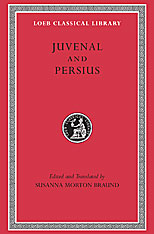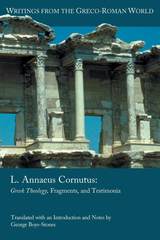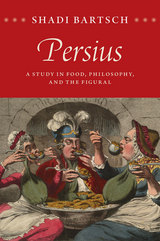
Mordant verse satire.
The bite and wit of two of antiquity’s best satirists are captured in this Loeb Classical Library edition.
Persius (AD 34–62) and Juvenal (writing about sixty years later) were heirs to the style of Latin verse satire developed by Lucilius and Horace, a tradition mined in Susanna Braund’s introduction and notes. Her notes also give guidance to the literary and historical allusions that pepper Persius’ and Juvenal’s satirical poems—which were clearly aimed at a sophisticated urban audience. Both poets adopt the mask of an angry man, and sharp criticism of the society in which they live is combined with flashes of sardonic humor in their satires. Whether targeting common and uncommon vices, the foolishness of prayers, the abuse of power by emperors and the Roman elite, the folly and depravity of Roman wives, or decadence, materialism, and corruption, their tone is generally one of righteous indignation.
Juvenal and Persius are seminal as well as stellar figures in the history of satirical writing. Juvenal especially had a lasting influence on English writers of the Renaissance and succeeding centuries.

THIS EDITION HAS BEEN REPLACED BY A NEWER EDITION
Juvenal, Decimus Iunius Iuvenalis (ca. AD 60140), master of satirical hexameter poetry, was born at Aquinum. He used his powers in the composition first of scathing satires on Roman life, with special reference to ineptitude in poetry (Satire 1); vices of fake philosophers (2); grievances of the worthy poor (3); and of clients (5); a council-meeting under Emperor Domitian (4); vicious women (6); prospects of letters and learning under a new emperor (7); virtue not birth as giving nobility (8); and the vice of homosexuals (9). Then subjects and tone change: we have the true object of prayer (10); spendthrift and frugal eating (11); a friend's escape from shipwreck; will-hunters (12); guilty conscience and desire for revenge (13); parents as examples (14); cannibalism in Egypt (15); privileges of soldiers (16, unfinished).
Persius Flaccus, Aulus (AD 3462), of Volaterrae was of equestrian rank; he went to Rome and was trained in grammar, rhetoric, and Stoic philosophy. In company with his mother, sister and aunt, and enjoying the friendship of Lucan and other famous people, he lived a sober life. He left six Satires in hexameters: after a prologue (in scazon metre) we have a Satire on the corruption of literature and morals (1); foolish methods of prayer (2); deliberately wrong living and lack of philosophy (3); the well-born insincere politician, and some of our own weaknesses (4); praise of Cornutus the Stoic; servility of men (5); and a chatty poem addressed to the poet Bassus (6).

The first English translation of Greek Theology
The first-century CE North African philosopher Cornutus lived in Rome as a philosopher and is best known today for his surviving work Greek Theology, which explores the origins and names of the Greek gods. However, he was also interested in the language and literature of the poets Persius and Lucan and wrote one of the first commentaries on Virgil. This book collects and translates all of our evidence for Cornutus for the first time and includes the first published English translation of Greek Theology. This collection offers entirely fresh insight into the intellectual world of the first century.
Features
- Translation based on the latest critical text
- The first truly holistic picture of Cornutus’s intellectual profile
- A new account of the early debate over Aristotle’s Categories and the Stoic contribution to it

In Persius, Shadi Bartsch explores this Stoic framework and argues that Persius sets his own bizarre metaphors of food, digestion, and sexuality against more appealing imagery to show that the latter—and the poetry containing it—harms rather than helps its audience. Ultimately, he encourages us to abandon metaphor altogether in favor of the non-emotive abstract truths of Stoic philosophy, to live in a world where neither alluring poetry, nor rich food, nor sexual charm play a role in philosophical teaching.
READERS
Browse our collection.
PUBLISHERS
See BiblioVault's publisher services.
STUDENT SERVICES
Files for college accessibility offices.
UChicago Accessibility Resources
home | accessibility | search | about | contact us
BiblioVault ® 2001 - 2024
The University of Chicago Press









